

WELCOME TO
We care your trip from the very beginning.

The most trusted Vietnam Visa, Immigration & Expatriate Consultant
Since 2002, we have delivered the services on Vietnam visa, Visa extension, Airport Services, Work Permit, Temporary Residence Card, Police Check & Consular Legalization.
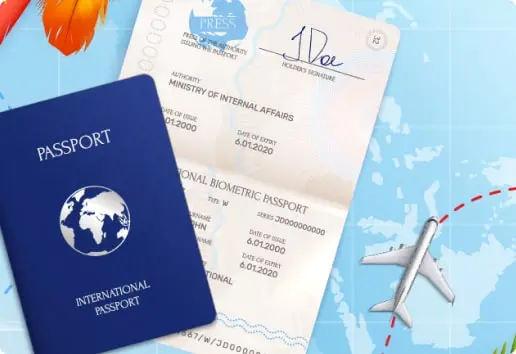
Find out why we lead the travel document industry enabling travelers to fly with ease.
Since 2002, we have always guaranteed:
In addition to Vietnam visa, we are also the leading expert in Airport services, work permit, temporary residence card and travel services like flight, hotel booking, and more...
From our Blog
.jpg)
Vietnam is a popular stop on many multi-destination trips across Asia. This article explains how to include Vietnam in your larger travel itinerary using an e-visa, what to consider when planning entry and exit dates, and how the e-visa fits into routes that also include nearby countries like Thailand, Cambodia, Singapore, and Malaysia. With the right preparation, Vietnam becomes an easy, flexible addition to your multi-country adventure.
.png)
It’s common for travel plans to change, but what happens if your Vietnam e-visa no longer matches your updated itinerary? This article explains whether you can modify the arrival or exit dates on an issued e-visa, what your options are if changes aren’t allowed, and how to avoid delays or issues at immigration. Stay informed so your updated travel schedule doesn’t affect your entry into Vietnam.
.png)
If you’re not confident with technology, applying for a Vietnam e-visa can feel overwhelming. This beginner’s guide breaks the process down into clear, easy-to-follow steps that anyone can handle. From preparing your documents to submitting the online form, you’ll learn exactly what to do without needing any technical skills. Perfect for first-time travelers or anyone who wants a simple, stress-free application experience.
.png)
Many travelers choose Vietnam as a temporary base while waiting for a visa from another country to be approved. This article explains whether you can enter Vietnam with an e-visa for this purpose, how long you are allowed to stay, and what to keep in mind regarding travel flexibility. With the right preparation, Vietnam can be a convenient place to wait while your next visa is being processed.
.png)
If your Vietnam e-visa application was rejected, you’re not alone—this happens for many reasons, from incorrect documents to mismatched personal details. This article explains whether you can reapply, how soon you can submit a new application, and what steps to take to avoid the same mistakes. With the right preparation, your second application has a much better chance of being approved.
.png)
Public holidays in Vietnam can impact e-visa processing times, leading to unexpected delays if you don’t plan ahead. This article explains how holiday schedules affect visa approvals, when to apply to avoid slowdowns, and what options you have if you need urgent processing. Stay prepared and ensure your travel plans go smoothly—even during the busiest times of the year.
.png)
Applying for your Vietnam e-visa too late—or too early—can cause unnecessary stress. This article helps you plan your application timeline by breaking down processing times, potential delays, and the ideal window to submit your e-visa request. Whether you’re traveling in peak season or need urgent processing, we’ve got the tips to help you apply with confidence.
.png)
Receiving your Vietnam e-visa is an exciting step—but there are a few important things to do (and avoid) before your trip. This article outlines the essential do’s and don’ts once you’ve been approved, including what to double-check before departure and how to stay compliant during your stay in Vietnam. Follow these tips for a stress-free arrival.
.png)
Visa runs are a common solution for travelers who want to extend their stay in Vietnam without overstaying their visa. This article explains what a visa run is, how it works with Vietnam’s e-visa system, and what you need to know to complete one smoothly.
.png)
Being blacklisted by Vietnam immigration can prevent you from re-entering the country and affect your visa applications in the future. This article explains what blacklisting is, why it happens (such as overstays, unpaid fines, or fake documents), and what you can do to avoid it altogether.

Hoi An at night brings you a feeling of nostalgia but still not lose the breath of modernity. Do you want to travel to Hoi An? You wonder what is must do in Hoi An in the evening? Please refer to the following article to have the most perfect Hoi An night trip.
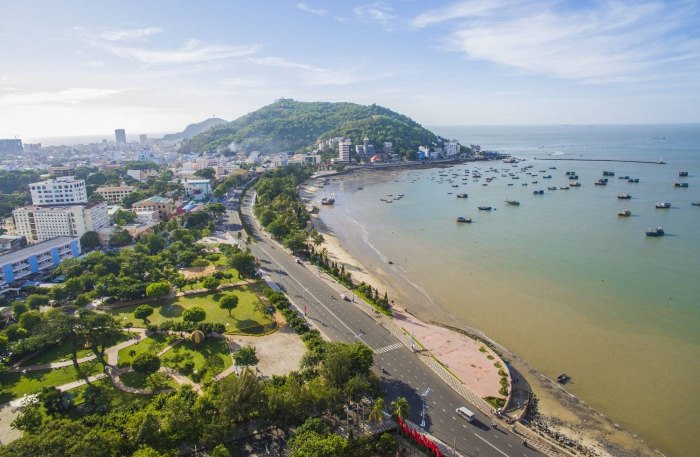
Let's Vietnam Visa explore 7 types of popular activities to do in Vung Tau - a coastal city 100 km away from HCMC, famous for its gentle beaches and warm water.

Ben Tre province, Vietnam’s capital of coconuts, is so close to Saigon that the contrast between the city’s cramble and Ben Tre’s peaceoffering is incredibly dramatic. If you are wondering what to do in Ben Tre for the upcoming trip, please refer to the article below.

Walking around the old town at night, enjoying the excellent tea, check-in on the famous Cau Pagoda... are BEST things to do when visiting to Hoi An

On 10th days of the third lunar month each year, Vietnamese people pay tribute to the Hung Kings, the 18 emperors of Vietnam by celebrating Hung King Commemoration Day. It is officially announced as a national holiday in 2007.
.png)
Cat Ba Island offers a more relaxed and equally breathtaking alternative to the busy Ha Long Bay. With a Vietnam e-visa, travelers can explore this island paradise known for its lush national park, beautiful limestone cliffs, and quiet beaches. This guide covers how to get there, what to see, and why Cat Ba is a hidden gem worth visiting.
.png)
Ganh Da Dia, located in Tuy Hoa, Phu Yen Province, is one of Vietnam’s most stunning natural formations—often called the ‘stone plate reef.’ With a valid Vietnam e-visa, travelers can easily access this unique coastal destination. This guide covers what makes Ganh Da Dia special, what to do there, and tips for planning your visit.

Vietnam is a dream destination for photography lovers, offering stunning landscapes, vibrant cities, and hidden gems perfect for Instagram. This guide highlights the most Instagrammable places across the country, from iconic landmarks to off-the-beaten-path locations. Whether you’re exploring Vietnam on an E-Visa or planning your next adventure, these picture-perfect spots will make your trip unforgettable.
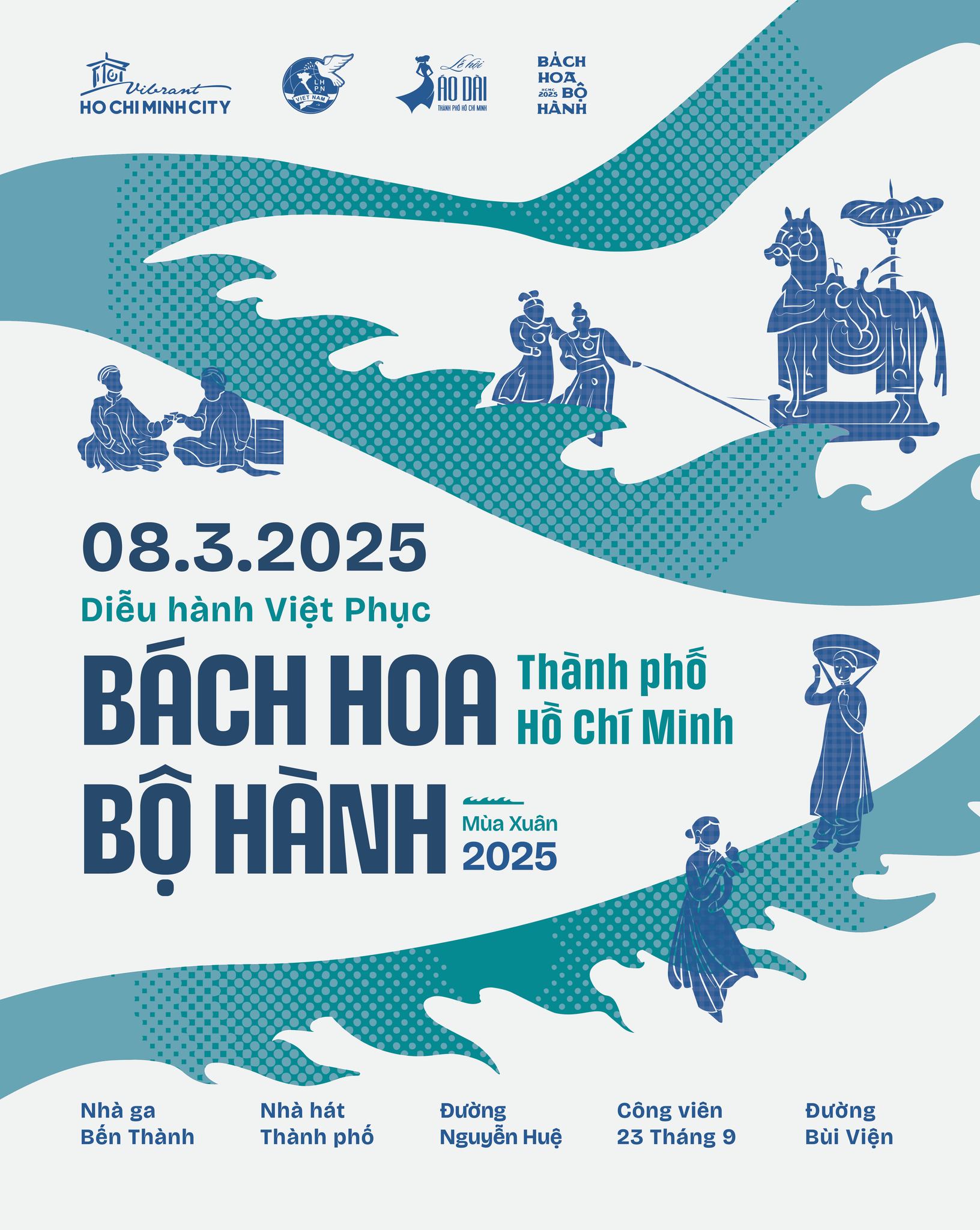
Bach Hoa Bo Hanh 2025 is a celebration of Vietnamese traditional clothing and historical fashion, set to take place in Ho Chi Minh City on March 8, 2025. As part of the Ho Chi Minh City Ao Dai Festival 2025, the event will feature a stunning parade of traditional garments, cultural exhibitions, and artistic performances. While the procession itself is not open to public participation, visitors can enjoy breathtaking displays of Vietnam’s Áo dài ngũ thân, Nhật Bình, Tấc, Giao Lĩnh, and more.
This is a must-see event for history lovers, photographers, and cultural enthusiasts. Plan your trip today and apply for your Vietnam e-visa to experience Bach Hoa Bo Hanh 2025!
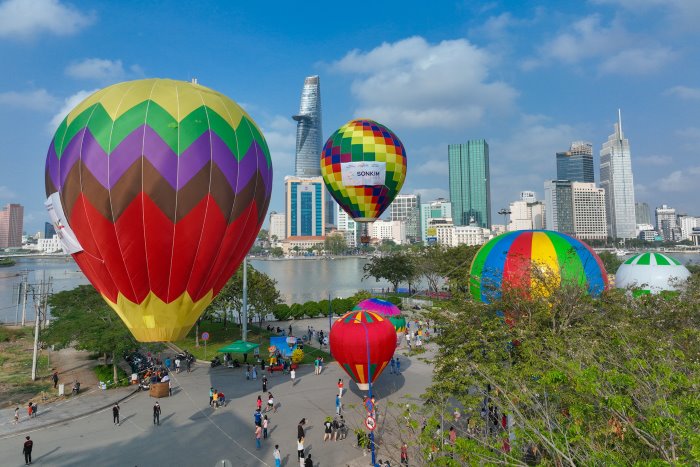
On January 22-23, the Festival of hot air balloons, yachts, and water sports activities attracted hundreds of people and tourists to participate in the Saigon River Tunnel Roof Park. This is an event to celebrate the first anniversary of Thu Duc City.

Bui Vien Street is well-known as the backpacker area filled by numerous groups of foreign visitors every year. Here you can look for some finest accommodations in Ho Chi Minh City. If you are still seeking somewhere to bed down for your upcoming trip in Vietnam, we have listed to 10 top-notch accommodations around this area.

Anyone who travels far away has two things to care about, one is to buy cheap air tickets, and the other is to book a hotel with a suitable price and beautiful view. As for dishes or sea views here, there is nothing to criticize.
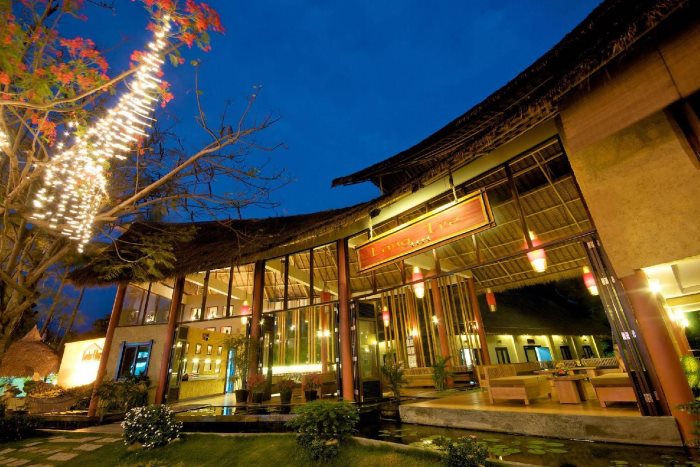
Phan Thiet is a coastal port city which is famous for the Red and White Sand Dunes, verdant mountains and remnants of the ancient Champa Kingdom. And the finest hotels in Phan Thiet lie amidst the intriguing landmarks, restaurants, exciting nightlife venues, which could be convenient to tourist. Below are the top 5 best accommodations for your trip to this stunning city.

Tourists travelling to Da Lat have several options for accommodation. They vary from a clean and tidy $5 a night hostels to a top-notch French-colonial architecture hotel spreading across the city. It is not too difficult to find an ideal place for your holiday, no matter you favour either resting in the city centre around the central market, Xuan Huong Lake and Truong Cong Dinh Street or even some remote places far away from the chaos tourists. Since the weather here is cool year-round, rooms are not equipped with air-conditioner.

Coming to Vietnam and visit Phan Thiet, the province that has one of the best beaches in Vietnam, you are probably wondering about the accommodation and their room fare. Let Vietnam Visa help you to find out where you can lie down and relax after a long day hanging around Phan Thiet, Vietnam.
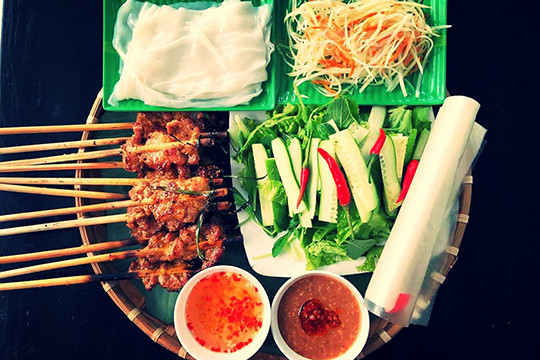
Besides the famous attractions, one thing that tourists are extremely interested in when traveling to Hoi An is cuisine. What to eat? Where to eat in Hoi An?
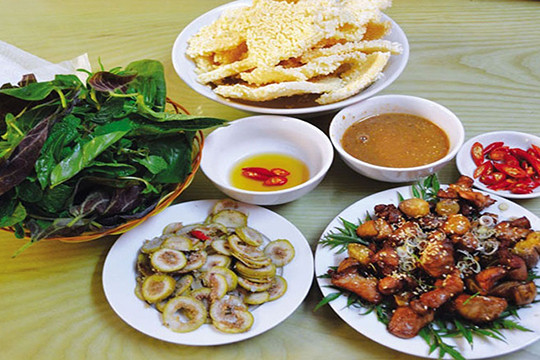
With 4 UNESCO titles, Ninh Binh has become very famous among international travellers to Vietnam. When you are there, do not forget to check out some of the Ninh Binh best dishes from this place.
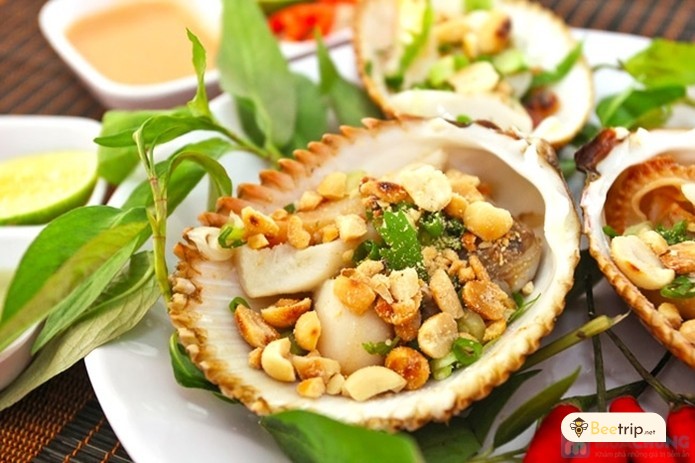
Saigon at night is always a great time to go down the street, sitting on a motorbike running around small alleys feeling every cool breeze blowing on your face, passing through the bustling roads and coming in to enjoy some street food, sipping with friends a few beers and gossip tables. One of the things you should try when coming to Vietnam is to try seafood street-eating experience - one of the favourite dishes of indigenous people. So where do they usually go to enjoy seafood, let's explore with Vietnam Visa!
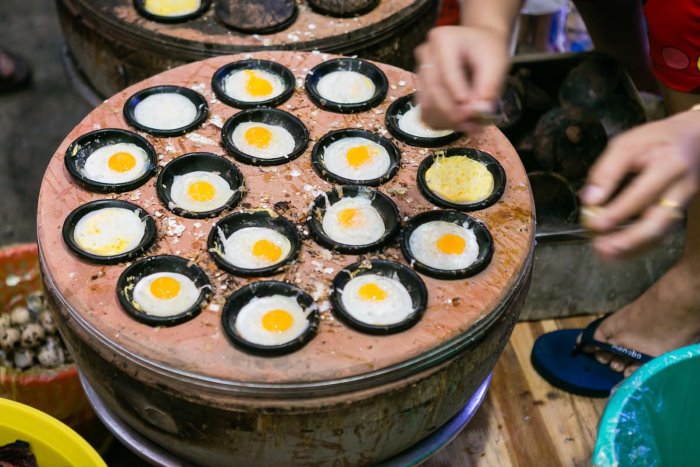
Going back to the city at night after a long day of sightseeing, you may ask yourself what to eat and where to find. This article will take you to the top 5 dishes to try at night in Dalat that you must try and it will not disappoint you. Apart from experiencing by eye, food will connect you with the true spirit of this dreamy land.

Enjoying special food in Nha Trang is a must-try for any first-time visitor to Vietnam’s most beautiful coastal city. Not only can you savor a great plenty of fresh seafood, Nha Trang also presents its own unique takes on typical Vietnamese recipes such as spring rolls and curries. Nha Trang food have an exclusive sweet and savoury flavour. Fish sauce is often used as a dipping sauce. Jellyfish is the classic ingredient for Nha Trang dishes. Besides the well-known dishes, this writing will give you some food suggestions for your trip.
